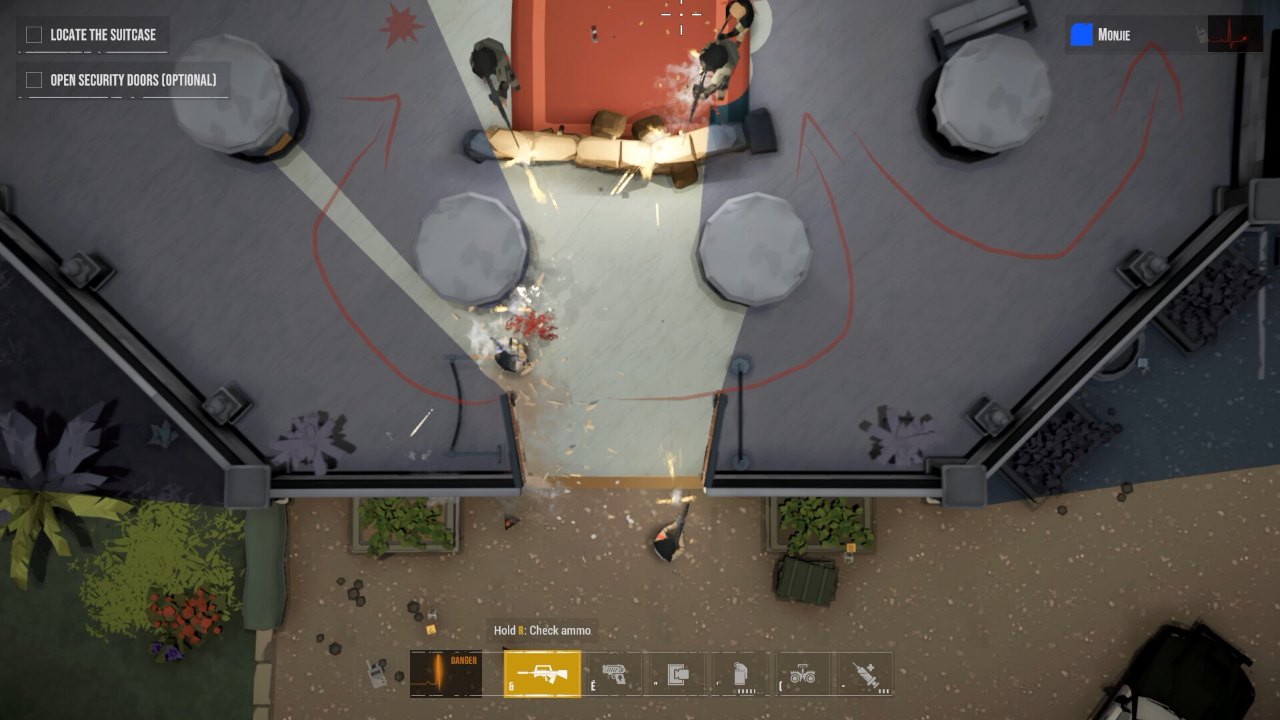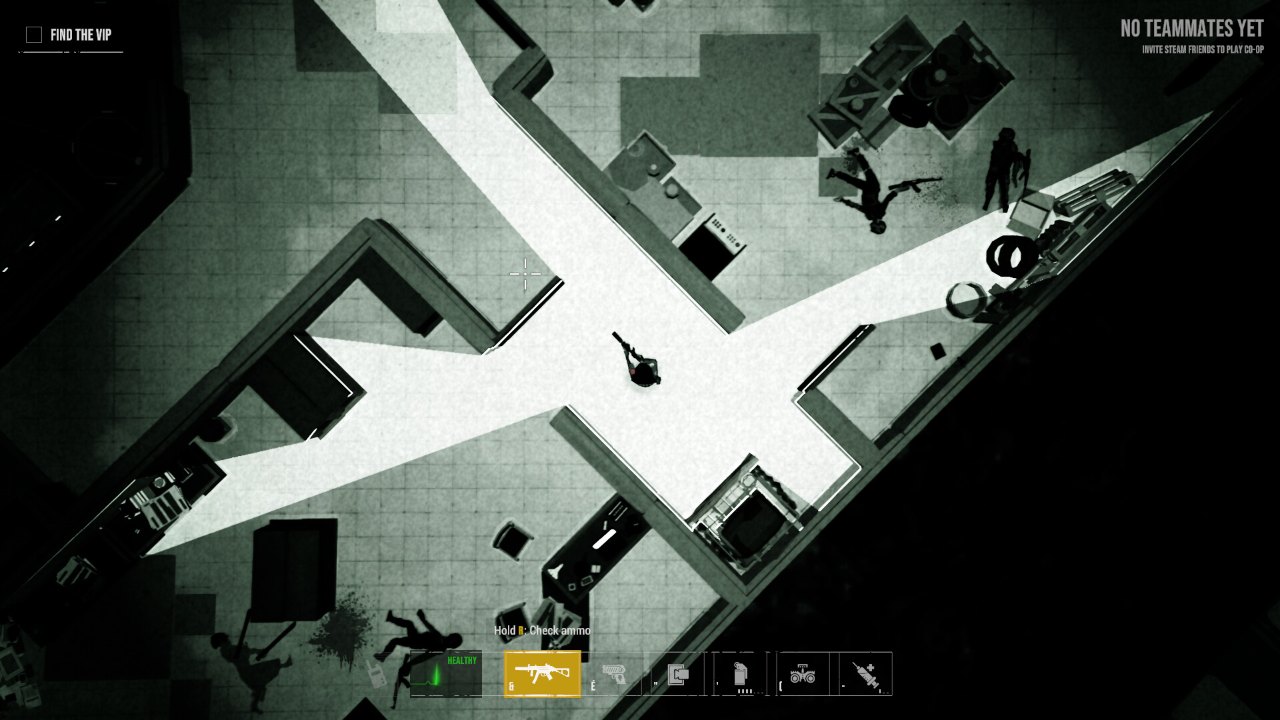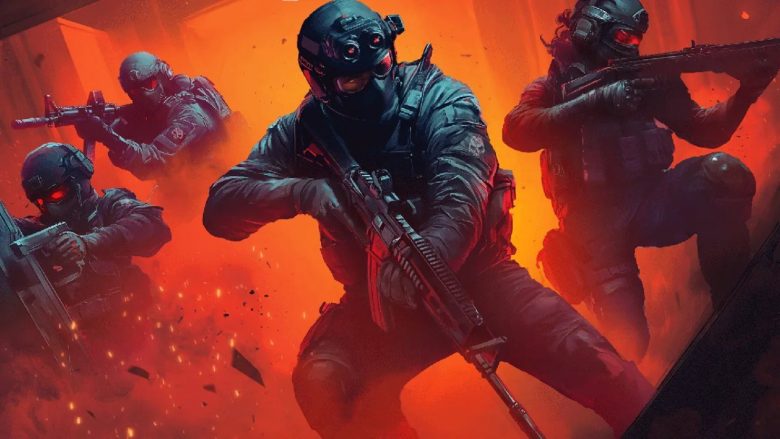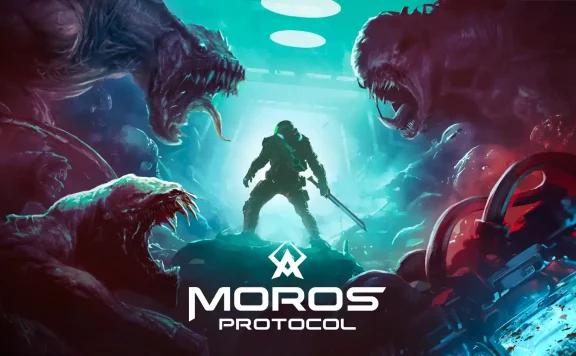There’s something undeniably satisfying about a well executed breach and clear in a video game, whether that’s something like the original Rainbow Six series or indie fare like Door Kickers. Phantom Squad parks its riot van somewhere between the two, mixing the immediate gratification of the latter with the more tactical nuance of the former.
Going into this game after playing through Ready or Not‘s more realistic campaign is a little surreal, as I can draw genuine parallels between the two. One-shot kill tactical shooters are always intense and brutally challenging, but games like Hotline Miami have an irreverence to them that’s mostly absent in Phantom Squad. This is a game that will punish your every mistake or imperfect decision, but that still manages to bring you back life after life due to its lightning pace.

Where Phantom Squad differs from similar games is in its use of real time planning. The Assault Coordination Engine (or ACE, of course) allows you to check out a detailed map of the mission area, with the ability to mark targets, coordinate squad movements, and execute breach manoeuvres with pinpoint accuracy. Or it will when you get the hang of it.
Initially I was turned off by how unforgiving it feels, as I watched my operatives eat bullets over and over again due to my slow reflexes or poor tactical mind. And you don’t even have to use ACE. It’s an optional tool, and if you want to go into every mission and wing it you can – but why would you? Planning and pulling off a tactical breach is super satisfying, likened to nailing a perfect run in Hotline Miami, and when it all falls into place it will make you feel like a genius. Getting to that point is tricky though, because Phantom Squad really seems to want you to learn through failure.
Which is why I feel I struggled so much with the difficulty. The onus in these games is usually on getting the job done fast and brutally, clearing the mission in record time and nailing every shot. But Phantom Squad doesn’t require this from us – which is why I said it only seems like it wants us to fail. In actuality, it really just wants us to plan and think and take our time. Smashing through doors willy-nilly will get you and your crew perforated fast, and at no point during the campaign was I told to move faster. That was all me, acting on instinct. When I slowed down, it all worked much better.

A top-down arcade shooter with a much more tactical theme is genius, and something I’m surprised we don’t see more of. So often games that look like this exist to let us blast and chop and sprint our way through them, when Phantom Squad is the opposite. It gives players every tool they need to plan and execute, while rewarding success with feelings of genuine euphoria and a sense of intelligence. Games that make you feel smart are always good.
There’s not much to the premise beyond this set up, but there doesn’t need to be. The joy here comes from knowing you’ve executed your plan perfectly in the moment, and the rewards reflect that with new loadouts and gear. With clear objectives, clever enemy, and scope to be creative in your approach, Phantom Squad is a stiff challenge that will give tactic-heads a lot of trouble, but in the best way.



